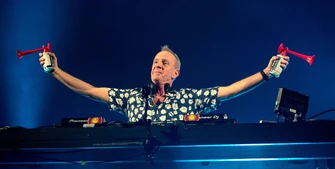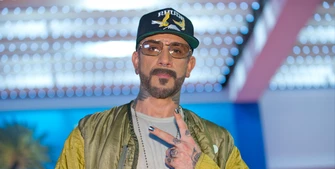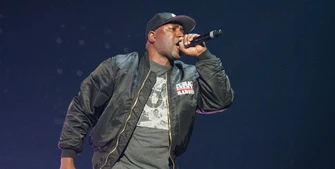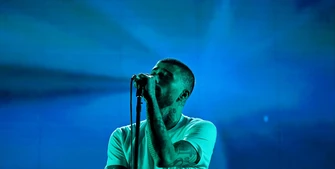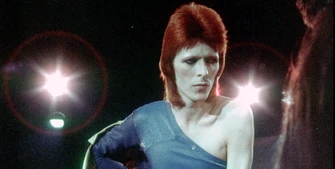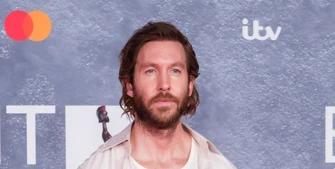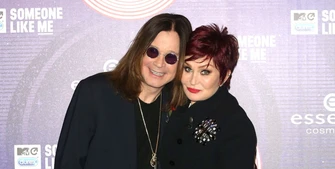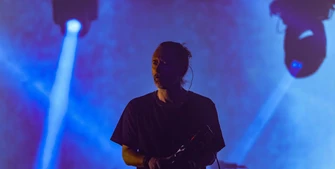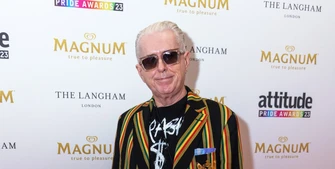Glitter, gimmicks and global fame... How the Eurovision Song Contest can turn local underdogs into global pop superstars!
The Eurovision Song Contest is upon us and the grand final has the power, and the TV audience, to make superstars of the acts who compete, but who are they?
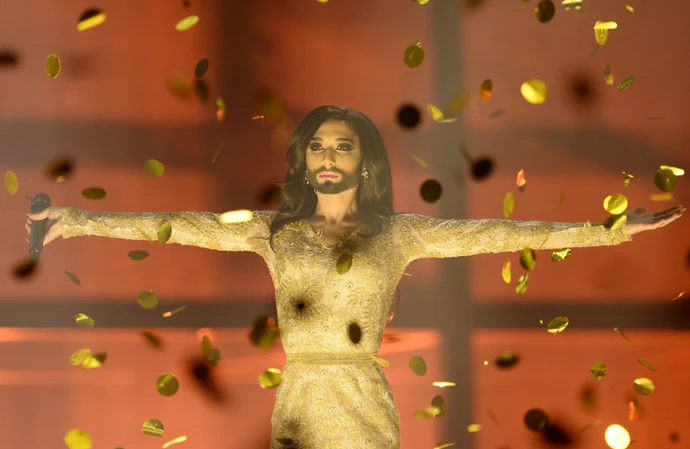
If you're a Eurovision aficionado like me, then no doubt you’re already deep down the YouTube rabbit hole blasting past bangers like Loreen’s ‘Euphoria’ because yes, the grand final of the Eurovision Song Contest is indeed upon us.
In a full-circle moment, the 69th Eurovision Song Contest returns to Switzerland on Saturday night (17.05.25), the place where it all began in Lugano back in 1956.
Over 200 million people will be tuning in as Europe’s greatest musical circus, cultural battlefield and soft-power talent show all rolled into one takes over St. Jakobshalle in Basel.
Founded as a way to unify post-war Europe, the Eurovision Song Contest has grown into one of the longest-running and most extravagant televised competitions in history.
The premise is simple: countries submit original songs performed live, then vote for each other in a gloriously opaque tallying system that somehow always ends in controversy, outrage and the occasional “nil points” catastrophe.
While the glitter, gimmicks and political voting often steal the spotlight, Eurovision has also served as a formidable launchpad for artists who have transitioned from underdogs to global superstars.
Ahead of the grand final, let’s rewind and revisit how this utterly unhinged spectacle has propelled some of its most unforgettable contestants from local curiosities to international pop royalty.
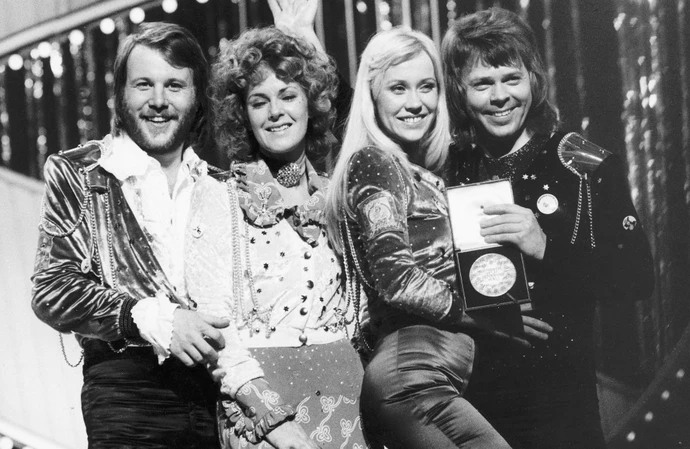
ABBA become pop legends after their 1974 Eurovision win / Credit: Getty
ABBA: Dancing queens
Before she slipped into those iconic red sandals as Sandy in 1978’s ‘Grease’, a sweet-voiced Australian named Olivia Newton-John stepped onto the Eurovision stage in 1974, representing the UK with the breezy ballad ‘Long Live Love.’ She finished fourth, but history remembers the act she lost to.
The winning act was non-other than the glammed-up Swedish foursome called ABBA, who stole the show with ‘Waterloo’ and the rest was history.
It wasn’t just a victory, it was a watershed moment. ABBA went on to dominate global pop with unstoppable earworms like ‘Dancing Queen,’ ‘Super Trouper' and ‘Honey Honey,’ eventually selling over 375 million records worldwide. The ‘Mamma Mia!’ franchise is keeping the legacy alive and their London based ABBAtars.
Eurovision didn’t just birth a band, it lit the fuse on a pop culture juggernaut, transforming a kitschy song contest into a full-blown rocket ship.
Måneskin: Eurovision rocks out
More recently, Måneskin, Italy’s eyeliner-drenched rockers, blew the roof off Rotterdam in 2021 with ‘Zitti e buoni.’ With their gritty glam-rock aesthetic and electrifying performances, Måneskin have gone on to play at Coachella, appear on the cover of Rolling Stones and dominate charts worldwide. Living proof that Eurovision can crank out bona fide rock gods.
Julio Iglesias: Croons into our hearts
Eurovision has long been a platform for powerful performances that detonate the competition, giving rise to voices that would go on to define the musical landscape for decades. From heartfelt ballads to soaring anthems, these artists didn’t just compete, they captivated the world.
In 1970, Spain sent a fresh-faced crooner named Julio Iglesias to the Eurovision stage with the romantic ballad ‘Gwendolyne'. Though he didn’t win, the loss hardly mattered. This song lit a fuse on a career that would see him become one of the world's most popular crooners, selling over 100 million records and becoming the international poster boy for romance, smoulder, and velvet tuxedos.
In case the name rings a bell, yes, he is in fact the father of Enrique Iglesias - who carried the Latin pop torch into the early 2000s with breathy vocals, unbuttoned shirts and sultry chart-toppers.
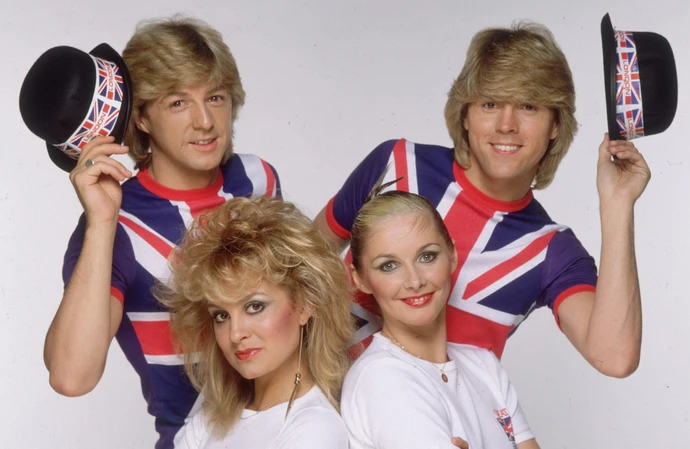
Bucks Fizz proudly flew the flag for Great Britain / Credit: Getty
Bucks Fizz: Made our minds up
When four plucky Brits known as Bucks Fizz hit the Eurovision stage in 1981, no one expected a choreographed skirt-rip to rewrite pop history. But their winning track ‘Making Your Mind Up’ - boosted by that now-iconic costume reveal - became an instant smash, topping the UK charts and spreading across Europe.
More than just a one-hit Eurovision wonder, Bucks Fizz spun their win into a full-blown pop career, scoring a string of hits, racking up platinum sales and earning a seat at the table of early '80s British pop royalty. Not bad for a group the critics initially dismissed as glittery fluff.
Celine Dion: A Titanic win
Flash forward a few years later to 1988 where a 20-year-old Céline Dion stepped up to represent Switzerland with the soaring ‘Ne partez pas sans moi'. She clinched the crown by a single point in a nail-biting finale. This was only the beginning for Céline. Within a decade, she would deliver the power ballad of the century: ‘My Heart Will Go On,’ the soundtrack to 1997’s ‘Titanic’ that sealed her status as a global icon.
Sertab Erener: East Meets West, Belly First
In 2003, Sertab Erener became Turkey's first winner with ‘Every Way That I Can'. It was a moment of cultural assertion for a country straddling two continents, blending East and West. Clad in chiffon and flanked by a hareem of seductive belly dancers, Sertab shimmied along with hypnotic precision.
Turkey’s layered, often-contested identity was suddenly front and centre on Europe’s biggest stage, not diluted but amplified. This performance didn’t just win the competition, it etched itself into Eurovision history, remaining one of the most iconic and adored amongst fans.
Ruslana: Warrior Pop
Before Ukraine had Kalush Orchestra rallying the world with ‘Stefania’, it had Ruslana - a leather-clad cyclone of adrenaline who stormed Eurovision in 2004 with ‘Wild Dances’ and snatched the country’s first-ever win.
Channelling her inner warrior queen, Ruslana invaded the stage like she was reclaiming ancient territory, flanked by a tribal battalion of fur-draped backup dancers in a siege. With a thunderous 280 points, she conquered the competition and brought Eurovision to Kyiv for the first time the following year.
Since then Ruslana has transformed from pop star to political firebrand, speaking out against corruption during the Euromaidan protests and emerging as a fierce defender of Ukrainian sovereignty.
Helena Paparizou: The Greek Goddess Rises
In 2005, Helena Paparizou, a Swedish-born singer of Greek descent, brought Greece its first-ever Eurovision win with the fiery anthem ‘My Number One.’ The performance featured traditional Greek instruments like a Cretan lyra and the bouzouki fused with a slick, contemporary dance routine involving her dancers forming a human lyre.
Helena went on to become the most successful Greek pop star of the 21st century, regularly topping charts in both Greece and Sweden, and serving as a judge on ‘The Voice of Greece’. The Mediterranean hit is still a number one amongst Eurovision fans.
Chanel: Turning up the Heat
When Chanel stepped onto the stage in 2022 with ‘SloMo’, it marked a pivotal shift for Spain, ditching decades of flamenco clichés. The Cuban-Spanish powerhouse turned up the heat as she brought a reggaeton-laced, latex-clad spectacle, turning Eurovision into a fiesta.
Her fierce and fiery performance snapped Spain’s losing streak, landing the country its best result in nearly 30 years. Her third-place finish was just the beginning. After the contest, ‘SloMo’ climbed the charts, dominated festival stages, and positioned Chanel as a new kind of Spanish pop star. Flamenco had officially met its match.
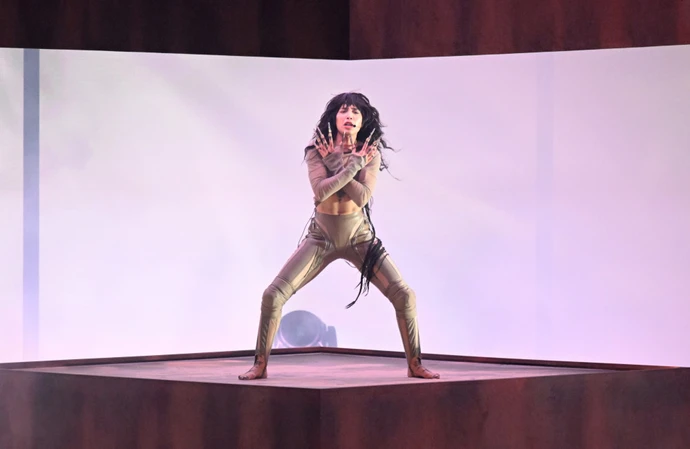
Loreen performing Tattoo at the 2023 Eurovision grand final / Credit: Getty
Loreen: Reigning Oracle
Enter Loreen, the Swedish-Moroccan enigma who redefined Eurovision.
In 2012, she floated onto the stage with ‘Euphoria’- barefoot, wind-whipped, and cloaked in minimalist mystique. Loreen cut through the chaos with pure, pulsing synths and otherworldly presence.
Ditching the usual glitter-fuelled theatrics, Loreen delivered a performance of stripped-back intensity and spiritual weight, standing in stark contrast to Eurovision’s usual theatrics. The song went on to top charts in over 20 countries, turning her into an international phenomenon and modern pop oracle.
In 2023, she returned and made Eurovision history, becoming the first woman to win the contest twice. Her 2023 entry, ‘Tattoo’, was darker, earthier and heavier with meaning. A subtle nod to her Berber roots, echoed in every detail, from her stone-carved claw nails to staging that evoked the ruggedness of the Atlas Mountains.
Faux Russia with Love
When Russia sent t.A.T.u. to Eurovision in 2003 with their song ‘Ne Ver Ne Boysia Ne Prosi’ it sent shockwaves to a country which cracks down hard on LGBTQ+ rights.
Lena Katina and Yulia Volkova stirred controversy with their lip locking and hand holding antics. Even though they came third, the provocative spectacle cemented their fame.
Though it was later revealed that the Russian pop duo had strategically marketed themselves as lesbians drawing the line between queer baiting and queer rebellion.
Verka Serduchka: Disco Ball Diplomacy
Then came Verka Serduchka, the Ukrainian drag sensation who crashed the 2007 contest in a tinfoil hat and metallic jumpsuit like a caffeinated alien shouting ‘Dancing Lasha Tumbai’.
While the lyrics were officially gibberish, depending on how you heard it, many heard “Russia Goodbye”. A swipe at Russian imperialism cleverly masked as camp. It was drag, satire and national identity all in one. Despite coming second, Verka carved out a new lane in Eurovision protest pop and became a living legend.
Conchita Wurst: Drag-ging Europe into the Spotlight
In 2014, Austria introduced the world to Conchita Wurst - a bearded drag queen with a Bond-theme ballad ‘Rise Like a Phoenix’. The world was blown away by the emotional song which won the pop contest by a slide. It wasn’t just a powerful anthem, it was a middle finger to rising conservatism across Europe, including Russia’s anti-LGBTQ laws.
Whilst right-winged politicians fumed and Russian state TV frothed in the mouth over Conchita - who was crowned the first drag star – she became a symbol for queer defiance, gender fluidity and European liberalism by meeting with EU leaders and performing at the UN.
Kalush Orchestra: Song of Survival
As Russian bombs fell across Ukraine in 2022, Kalush Orchestra stood on the Eurovision stage, blending hip-hop with traditional Ukrainian folk music in a heartfelt tribute to mothers and to a nation under siege.
‘Stefania’ was a resistance anthem that turned the contest into a referendum as viewers across the continent stood in solidarity with Ukraine, voting not just for the music but for Ukraine’s survival, handing the country a landslide win and a platform to shout. It was the most overly political moment in Eurovision history underscoring the contest’s roots: music as unity, identity as protest.
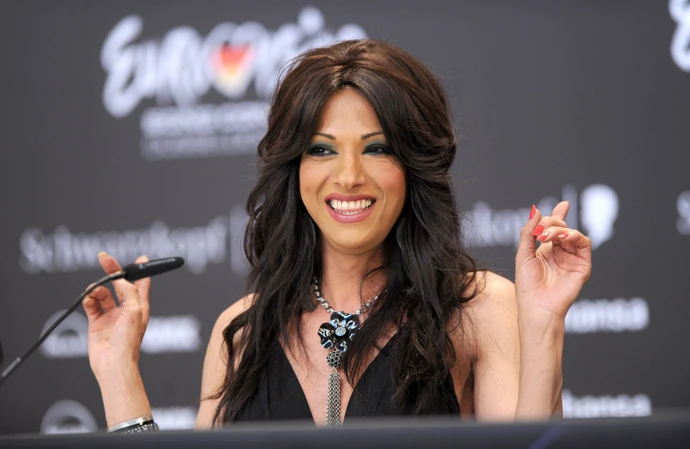
Dana International representing Israel at the 2011 Eurovision Song Contest: Avalon
Dana International: Trans-cending the Stage
Before gender fluidity was part of the mainstream lexicon, Dana International took the Eurovision stage in 1998 and rewrote the rules. Representing Israel with ‘Diva’, she became the first openly transgender winner in the contest’s history and an overnight icon. Her win wasn’t just symbolic, it was seismic.
After delivering ‘Diva’ in a sleek black gown, she returned to the stage to collect her trophy in a feathered Jean Paul Gaultier bolero, making sure the statement was heard and seen in haute couture.
More than two decades on, Dana’s legacy endures: a defiant reminder that Eurovision has always been ahead of the curve, and never afraid to put its politics in heels.
Lena: Germany’s Quirky Charm
When Lena won Eurovision in 2010 with 'Satellite', she wasn’t just a surprise victor, she was a breath of fresh air in a sea of Eurovision overkill.
With her awkward, offbeat charm and playful musings, Lena stole the hearts of millions. Her win signalled a shift in the competition, showing you don’t have to be a diva or rely on a spectacle to claim the crown.
After the contest, Lena went on to judge ‘The Voice Kids’ and lent her voice to the animated film ‘Wonder Park’, solidifying her place as an unpretentious yet enduring pop figure.
Alexander Rybak: The Violin Virtuoso
In 2009, Belarusian-Norwegian fiddler Alexander Rybak, charmed his way into the hearts of millions with ‘Fairytale’ winning with a record-breaking 387 points. With his violin in hand, boyish charisma, and infectious energy, Rybak turned what could have been a quaint performance into a show-stopping triumph. He became an international household name, and his win remains one of Eurovision’s most beloved moments.
Emmelie de Forest: An Ethereal Muse
Emmelie de Forest entered Eurovision in 2013 like a Danish elf, barefoot and glowing with ethereal charm. Her performance of ‘Only Teardrops’ was a mesmerising mix of modern pop and folklore that bewitched the audience and transported them into the heart of Scandinavia’s mystical landscapes. Her haunting vocals and earthy presence created a winning combination, proving that magic doesn’t always need flashing lights.
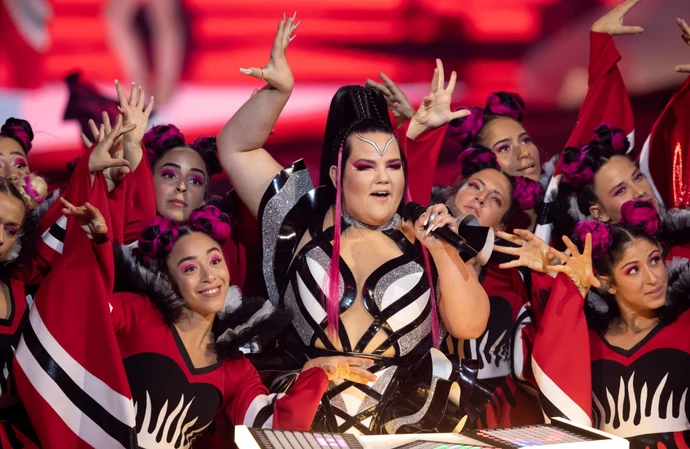
No one will ever forget Netta's Toy / Credit: Getty
Mother Clucker!
In contrast to the subtle superstars you’ve just read about, I wouldn’t be a true fan without mentioning Netta Barzilai.
In 2018, Netta exploded onto the Eurovision stage with Israel’s entry ‘Toy’, shaking up the competition with her eccentric, boundary-pushing performance. Netta’s eccentric performance, featuring quirky beats, looping sounds, and her trademark chicken cluck, divided the audience – some were enamoured, while others were less than impressed.
Regardless, her victory was undeniable, securing a massive 567 points, the highest of that year, cementing her place as one of the most unforgettable winners in recent Eurovision history. Her victory, though, was as controversial as it was triumphant. Critics accused her of cultural appropriation, questioning her use of traditional Japanese-inspired elements in her performance.
Despite the criticism, Netta went on to carve out her own lane in global pop, embracing her experimental, fearless approach. Her success proved that sometimes, it’s the boldest and most unexpected moments that lead to the greatest victories. Netta even appeared in the 2020’s musical ‘Eurovision Song Contest: The Story of Fire Saga’, further cementing her status as an international icon.
Who is the next Eurovision breakout star?
Eurovision’s true magic lies in its ability to transform ordinary acts into extraordinary superstars, blending sequins, iridescent sparkle, and a dash of controversy. From anthems that bring nations together to performances that spark global debates, the stage has witnessed countless performances that continue to echo far beyond the final tally.
As the 69th Eurovision Song Contest unfolds this weekend, who knows what unexpected gem will steal the spotlight?
If you ask me, my money’s on Estonia’s Tommy Cash with ‘Espresso Macchiato’. His cheeky, controversial satire of Italy has got the country’s vice president fuming and audiences buzzing.
Already making headlines, will it be the most controversial act of the night?
Whatever happens, we’ll all be watching, because in the world of Eurovision, anything goes. It’s Euro-visionary.

